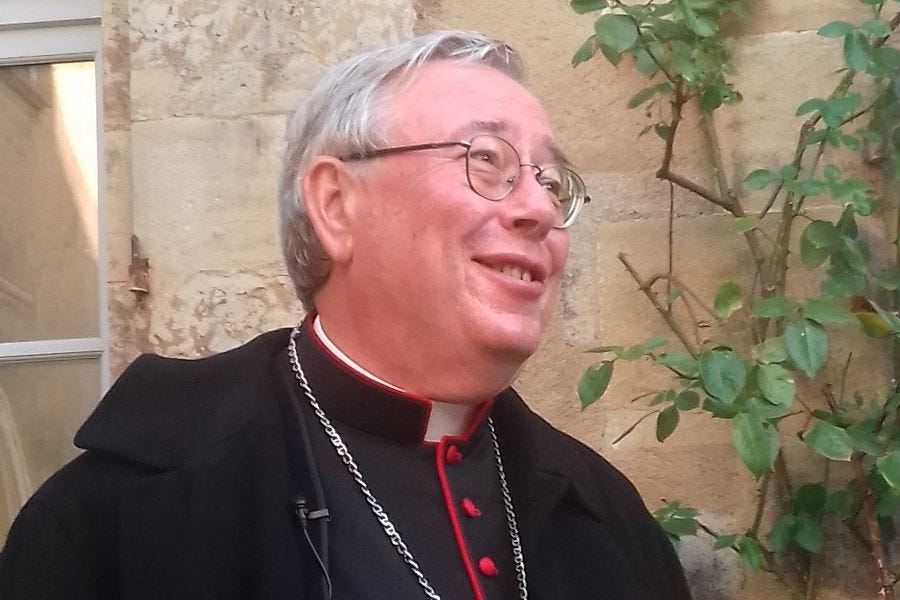Cardinal Hollerich among new members of pope’s Council of Cardinals
Other new arrivals include Canada’s Cardinal Gérald Lacroix.

Pope Francis named new members to his Council of Cardinals Tuesday, including the Jesuit Cardinal Jean-Claude Hollerich.
The Vatican press office announced March 7 that the advisory body would once again consist of nine cardinal members. It said that the pope was taking the step because the mandate of the previous membership had expired and needed to be renewed.
Among other new arrivals are Spain’s Cardinal Juan José Omella Omella, Brazil’s Cardinal Sérgio da Rocha, and Canada’s Cardinal Gérald Lacroix.
Before the new appointments, the council consisted of seven cardinals and secretary Bishop Marco Mellino.
Those retaining their places on the council include the Vatican Secretary of State Cardinal Pietro Parolin, the U.S. Cardinal Seán O’Malley, the Congolese Cardinal Fridolin Ambongo Besungu, the Indian Cardinal Oswald Gracias, and the Italian Bishop Mellino.
Three cardinals are no longer listed among the council’s members: the German Cardinal Reinhard Marx, the Honduran Cardinal Óscar Andrés Rodríguez Maradiaga, and the Italian Cardinal Giuseppe Bertello.
Both Maradiaga and Bertello recently turned 80, the age when cardinals are no longer eligible to vote in conclaves.
Bertello was appointed to the Council of Cardinals in his former capacities as president of the Governorate of Vatican City State and president of the Pontifical Commission for Vatican City State. He stood down from both roles in October 2021. His successor, Cardinal Fernando Vérgez Alzaga, was named a member of the Council of Cardinals on March 7.
Hollerich is arguably the most high-profile of the new appointees. The Archbishop of Luxembourg, who was named a cardinal in 2019, will serve as the general rapporteur of this October’s synod on synodality.
He generated headlines last year when he said he believed that the “sociological-scientific foundation” of the Church’s teaching on homosexuality was “no longer correct.”
But at a Vatican press conference in August, he insisted that he had “no personal agenda” for the synodal process and favored “a change not of doctrine, but a change of attitude.”
Pope Francis established the Council of Cardinals months after his election in 2013, to assist him “in the governance of the universal Church” and “studying a project for the revision of the apostolic constitution Pastor Bonus on the Roman Curia.”
The body was nicknamed the “C9” as it had nine members when it was at full strength. But its membership began to be depleted with the departure of Cardinal George Pell to Australia to defend himself against abuse accusations.
Other former C9 members include Cardinal Laurent Monsengwo Pasinya, the emeritus archbishop of Kinshasa who died in 2021, and Chile’s Cardinal Francisco Javier Errázuriz Ossa. Both men completed their terms in 2018, alongside Pell.
The new Vatican constitution, Praedicate evangelium, was finally promulgated in March 2022 after nine years in development with the help of the C9.
The Council of Cardinals’ next meeting is due to be held April 24 at the pope’s residence, the Casa Santa Marta. At the body’s last meeting in December, members discussed the continental stage of the global synodal process, among other topics.





